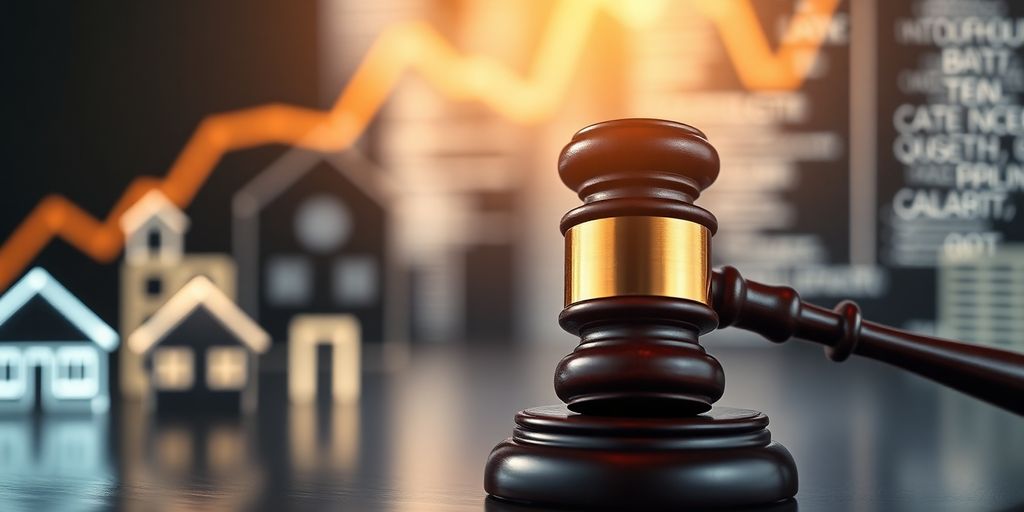Turning real-world items into digital tokens, or "tokenization," is a big deal right now. It's changing how we buy, sell, and manage things like property or art. But, this new way of doing things comes with its own set of rules. It’s super important to get the legal side right if you’re going to get into this. This article will look at the legal token frameworks that are out there, what problems people run into, and how to stay on the right side of the law as this technology grows.
Key Takeaways
- Understanding the current legal rules for tokenized assets is a must, as these rules can change a lot depending on where you are.
- Securities laws, financial rules, and anti-money laundering checks are big parts of making sure tokenization projects are legal.
- One of the hardest things is getting different countries to agree on how to regulate these digital assets.
- To stay out of trouble, you need to do your homework on who is issuing the tokens and what the assets are, and make sure you have all the right permits.
- The laws around tokenization are always changing, so keeping up with new trends and working with others globally will be important for the future.
Understanding the Legal Landscape for Real-World Asset Tokenization

The Legal Background of Real World Asset Tokenization
The legal side of real world asset tokenization (RWA tokenization) is pretty complex worldwide. Lots of countries have different rules that keep changing because new tech keeps showing up. As more people start tokenizing real-world stuff, it's important to know the basics.
- Different countries have different laws.
- Laws are changing all the time.
- New tech makes things even more complicated.
It's like trying to build a house when the building codes keep changing and you're not sure what materials you're allowed to use. You need to stay updated.
Regulatory Frameworks for Tokenized Assets
Understanding the regulatory frameworks is key for anyone wanting to get into asset tokenization. Without clear rules, things can get messy. It's not just about following the law; it's also about building trust with investors. If there aren't clear guidelines, tokenized assets might face legal problems that slow down their adoption and limit how well they do in the market.
- Securities laws
- Financial regulations
- AML and KYC rules
Navigating Jurisdictional Differences
Dealing with different legal systems across countries is a big challenge. What's legal in the USA might not be legal in Europe, or Asia. You have to understand these differences to avoid problems. For example, securities laws can vary a lot, and that affects how you structure your asset tokenization project. It's important to get advice from lawyers who know about these things in each country you're working in.
- Securities laws differ.
- Tax laws vary.
- Contract enforcement changes.
Key Regulatory Areas for Legal Token Frameworks

Securities Laws and Tokenized Assets
Okay, so when we're talking about tokenizing stuff, especially real-world assets, securities laws are a big deal. Basically, if your token acts like a stock or bond, it's probably going to be treated as a security. This means you have to play by the rules set by the SEC (in the US) or similar bodies elsewhere. It's not always super clear-cut, and that's where things get tricky. You have to figure out if your token passes the Howey Test (or whatever the local equivalent is) to determine if it's a security. If it is, you're looking at registration requirements, disclosure rules, and a whole bunch of other compliance stuff. It's a headache, but avoiding it can lead to serious legal trouble. The classification of security is a critical first step.
Compliance with Financial Regulations
Beyond just securities laws, there's a whole heap of other financial regulations you need to think about. We're talking about things like market manipulation rules, insider trading prohibitions, and rules around operating exchanges or broker-dealers. If your tokenization project involves any of these activities, you're going to need to comply with those regulations too. This can mean getting licenses, setting up compliance programs, and constantly monitoring your activities to make sure you're not breaking any rules. It's a lot of work, but it's essential for staying on the right side of the law. Think of it like this:
- Licensing: Do you need a license to operate your platform?
- Reporting: What kind of reports do you need to file with regulators?
- Oversight: How are you monitoring your platform for illegal activity?
Anti-Money Laundering and Know Your Customer Requirements
AML/KYC is non-negotiable. You absolutely have to know who your customers are and make sure they're not using your platform to launder money or finance terrorism. This means implementing KYC procedures to verify the identity of your users, screening them against sanctions lists, and monitoring their transactions for suspicious activity. It also means filing suspicious activity reports (SARs) with the relevant authorities when you see something that doesn't look right. It's a pain, but it's a critical part of keeping the financial system clean. Many platforms use specialized software to help with this, but you still need to have a solid understanding of the rules and regulations. Here's a quick rundown:
- KYC Procedures: Verifying customer identities.
- Transaction Monitoring: Watching for suspicious activity.
- Reporting: Filing SARs when needed.
The regulatory landscape for tokenization is constantly evolving. What's legal today might not be legal tomorrow, so it's important to stay informed and adapt your compliance strategy as needed. Don't assume that just because you're using blockchain technology, you're automatically exempt from existing laws and regulations. In fact, the opposite is often true: regulators are paying close attention to this space, and they're not afraid to crack down on projects that aren't following the rules.
Challenges in Establishing Legal Token Frameworks
Cross-Border Regulatory Harmonization
Okay, so imagine trying to build a house, but the blueprints change depending on which room you're in. That's kind of what dealing with cross-border regulations feels like in the tokenization world. Each country has its own set of rules, and they often don't play nicely together. It's a real headache trying to figure out how to make everything work when the laws are different everywhere. You end up spending a ton of time and money just trying to stay compliant in every jurisdiction you're operating in. It's not just about knowing the rules, but also about figuring out how they interact and sometimes contradict each other.
Evolving Definitions of Digital Assets
What even is a digital asset, anyway? It sounds like a simple question, but trust me, it's not. The definition keeps changing, and that makes things super confusing. One day, something might be considered a security, and the next day, it's not. This moving target makes it hard to plan and stay compliant. It's like trying to shoot at something that's constantly changing direction. You need to stay updated on the latest interpretations and rulings, which is a full-time job in itself. The lack of clear, consistent definitions is a major roadblock for legal token frameworks.
Enforcement and Legal Recourse Mechanisms
So, what happens when things go wrong? That's the big question when it comes to enforcement and legal recourse. If someone messes up or breaks the rules, how do you hold them accountable? It's not always clear who has the authority to investigate and prosecute, especially when things are happening across borders. And even if you do manage to win a case, actually getting your money back can be a whole other challenge. The decentralized nature of blockchain can make it difficult to track down the responsible parties and enforce judgments. It's a bit like the Wild West out there, and we need better mechanisms to protect investors and ensure fair play.
It's important to remember that the legal landscape for tokenization is still developing. This means that there's a lot of uncertainty and ambiguity, which can make it difficult to make informed decisions. Staying informed, seeking expert advice, and being prepared to adapt to changing regulations are key to navigating these challenges.
Strategies for Ensuring Legal Compliance in Tokenization
Due Diligence on Issuers and Assets
Okay, so you're thinking about tokenizing something? First, you gotta do your homework. I mean, really do your homework. It's not just about checking if the issuer seems legit; it's about digging deep. Think of it like this: you wouldn't buy a used car without checking its history, right? Same deal here, but with potentially millions of dollars on the line.
- Background Checks: Run background checks on everyone involved – the issuer, directors, big shareholders, the whole shebang. You need to know who you're dealing with.
- Financials: Scrutinize their financial performance. Look at past statements, future projections, and how they manage their cash. Are they stable? Are they making wild promises they can't keep?
- Asset Valuation: How are they valuing the asset being tokenized? Is it a fair price? Get an independent appraisal if necessary. Don't just take their word for it.
It's better to be overly cautious than to end up in a legal mess later. Due diligence is your first line of defense against fraud and regulatory issues. It's not fun, but it's necessary.
Structuring Legal Entities for Tokenization
This is where things get a little complicated, but bear with me. The legal structure you choose for your tokenization project can make or break it. You can't just slap a token on an asset and call it a day. You need a proper legal wrapper legal entities to make sure everything is above board.
Think about what kind of entity makes the most sense for your specific asset and goals. Is it a limited liability company (LLC)? A special purpose vehicle (SPV)? Each has its own pros and cons. Also, consider where you're incorporating. Different jurisdictions have different rules, and some are more friendly to tokenization than others.
Here's a quick rundown:
Obtaining Necessary Licenses and Registrations
Okay, you've done your due diligence, and you've got your legal structure sorted. Now comes the fun part: getting all the necessary licenses and registrations. This is where you need to dot your i's and cross your t's.
First, figure out what licenses you actually need. This will depend on the type of asset you're tokenizing, where you're offering the tokens, and who you're selling them to. Are you dealing with securities? Then you'll probably need to register with the SEC (or its equivalent in other countries). Are you handling money? Then you'll need to comply with AML/KYC requirements.
- Engage Legal Experts: Seriously, get a lawyer who knows this stuff inside and out. Don't try to wing it.
- Regulatory Impact Assessment: Figure out the regulatory environment in each place where the tokenized asset will be offered.
- Compliance Strategy: Make a plan that covers securities laws, AML/KYC, and data privacy.
It's a pain, I know, but it's better to be safe than sorry. And remember, regulations are constantly changing, so you need to stay on top of things. Using a Token Tool can help you stay compliant.
Case Studies and Lessons Learned in Legal Token Frameworks
Successful Tokenization Projects and Their Legal Approaches
So, you're thinking about tokenizing something? Cool! Let's look at some folks who've already been there, done that. One project that caught my eye was the tokenization of a fancy hotel in Aspen. It allowed more people to own a piece of this high-end real estate.
In Europe, there's this real estate platform that's doing pretty well. They're tokenizing residential properties, which lets people buy fractions of homes. The cool thing is they're following MiFID II rules, which is a big deal in the EU. By sticking to the local laws, they've built trust with investors. It really shows how important it is to tailor your tokenization plans to fit the rules of the area.
Regulatory Pitfalls and How to Avoid Them
Okay, so it's not all sunshine and rainbows. There are definitely some potholes to watch out for. One big one is not following securities laws. You absolutely have to get this right. Another is not being clear about how you value and document your assets. If you're shady about this, investors will run for the hills, and regulators will come knocking.
Here's a quick list of things to keep in mind:
- Engage legal experts who know blockchain and finance.
- Assess the regulatory environment in each area where you'll offer the token.
- Create a compliance plan that covers securities laws, AML/KYC, and data privacy.
It's important to remember that tokenization projects often involve multiple countries. This means you need to understand different legal systems and find ways to work across them. It's not easy, but it's essential for success.
Best Practices from Global Implementations
So, what are the best practices we can learn from these global tokenization efforts? Well, compliance is key. You need to know the legal environment inside and out. Also, be super clear about your asset valuation and documentation. This builds trust with investors and regulators. If you're dealing with multiple countries, you need to understand the different legal systems and find ways to work across them.
Here's a table summarizing some key takeaways:
The Future Evolution of Legal Token Frameworks
Anticipated Regulatory Changes and Trends
Okay, so, what's coming down the pike in the world of legal frameworks for tokenization? Well, it looks like things are going to get a lot more defined. Right now, it's kind of the Wild West, but expect governments and regulatory bodies to start laying down some serious rules. These rules will probably try to balance innovation with protecting investors and keeping markets stable.
Think about it: right now, it's tough to know what's legal and what isn't. That's not good for anyone. Clearer rules will bring in more serious players and make the whole thing less risky. We might see stuff like specific licensing requirements, clearer definitions of what a "security token" actually is, and maybe even some international agreements to make things easier across borders. It's all about growing up, really. Tokenization can address liquidity issues in emerging economies, so it's important to get this right.
Impact of Emerging Technologies on Legal Frameworks
New tech always throws a wrench into the legal works, right? DAOs and NFTs are already making regulators scratch their heads. As these things become more common, the laws are going to have to adapt. We're talking about stuff like:
- How do you govern a DAO legally?
- Who owns the intellectual property of an NFT?
- How do you handle transfers of tokenized assets in a way that's fair and transparent?
These are tough questions, and the answers will shape the future of legal frameworks. It's not just about catching up; it's about anticipating what's next. The legal system needs to be flexible enough to handle whatever crazy new thing comes out of the blockchain world next week. It's a constant game of cat and mouse.
Global Collaboration for Unified Legal Standards
One of the biggest headaches right now is that every country has its own rules. That makes it super hard to do anything that crosses borders. Imagine trying to launch a tokenized asset that's legal in the US but illegal in Europe. Nightmare fuel. That's why global collaboration is so important. We need countries to talk to each other and try to come up with some common standards. It won't be easy, but it's essential for RWA tokenization to really take off.
Think about the internet. It works because there are some basic protocols that everyone agrees on. We need something similar for tokenized assets. It doesn't have to be perfect, but it has to be good enough to allow for cross-border transactions and investments. Otherwise, we're just building a bunch of isolated islands, and that's not very useful.
Here are some things that could help:
- International working groups to discuss legal issues.
- Model laws that countries can adapt to their own systems.
- Agreements on things like data privacy and investor protection.
Wrapping Things Up
So, what's the big takeaway here? Real-world asset tokenization is a pretty big deal, and it's changing how we think about owning stuff. But, it's not a free-for-all. There are rules, and those rules are still getting figured out by governments and financial groups all over the world. Staying on top of these legal frameworks isn't just about following the law; it's about making sure people trust this new way of doing things. As technology keeps moving fast, we'll probably see even clearer rules that help everyone involved. It's a journey, for sure, but one that's worth watching.
Frequently Asked Questions
What does 'tokenizing real-world assets' mean?
It's when real things like buildings, art, or even gold are turned into digital tokens on a computer network called a blockchain. This makes them easier to buy, sell, and share ownership of, kind of like splitting a big cake into many small slices.
What's the hardest part about the laws for tokenized assets?
The main challenge is that different countries have different rules for these digital tokens. What's okay in one place might not be in another, which makes it tricky for businesses that want to work across borders. Also, the rules are always changing as this new technology grows.
Are there rules to prevent crime with tokenized assets?
Yes, very much so! Just like with regular money and investments, there are rules to stop bad guys from using tokenized assets for illegal stuff like money laundering. Companies have to check who their customers are and report anything suspicious.
What does 'legal compliance' mean for tokenization?
It means making sure you follow all the laws and rules. This includes checking out the people or companies issuing the tokens, setting up your business the right way, and getting any special permits or licenses you might need. It's all about playing by the rules to avoid trouble.
What can we learn from past tokenization projects?
We can learn a lot! Successful projects show that it's super important to understand the laws, especially those about investments. Being open and clear about how assets are valued and documented helps everyone trust the system. And for projects that involve many countries, figuring out how to work with different legal systems is key.
What do experts think will happen with these laws in the future?
Experts think the laws will become clearer and more similar around the world. As technology keeps changing, governments and financial groups will try to create rules that help new ideas grow while still keeping investors safe and markets stable.




